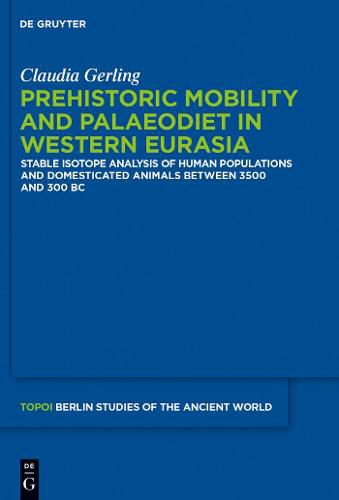Readings Newsletter
Become a Readings Member to make your shopping experience even easier.
Sign in or sign up for free!
You’re not far away from qualifying for FREE standard shipping within Australia
You’ve qualified for FREE standard shipping within Australia
The cart is loading…






This title is printed to order. This book may have been self-published. If so, we cannot guarantee the quality of the content. In the main most books will have gone through the editing process however some may not. We therefore suggest that you be aware of this before ordering this book. If in doubt check either the author or publisher’s details as we are unable to accept any returns unless they are faulty. Please contact us if you have any questions.
Questions concerning mobility and migration as well as subsistence strategies of past societies have always been of major importance in archaeological research. The West Eurasian steppes in the Eneolithic, the Early Bronze and the Iron Age were largely inhabited by cultural communities believed to show an elevated level of spatial mobility, often linked to their subsistence economy. In this volume, questions concerning the mobility and potential migration as well as the diet and economy of the West Eurasian steppes communities during the 4th, the 3rd and the 1st Millennia BC are approached by applying isotope analysis, specifically 87Sr/86Sr, 18O, 15N and 13C analyses. Adapting a combination of different isotopic systems to a study area of vast spatial and chronological dimension allowed a wide variety of questions to be answered and establishes the beginning of a database of biogeochemical data for the West Eurasian steppes. Besides the characterisation of mobility and subsistence patterns of the archaeological communities under discussion, attempts to identify possible Early Bronze Age migrations from the steppes to the steppe-like plains in parts of Eastern Europe were made, alongside an evaluation of the applicability of isotope analysis to this context.
$9.00 standard shipping within Australia
FREE standard shipping within Australia for orders over $100.00
Express & International shipping calculated at checkout
This title is printed to order. This book may have been self-published. If so, we cannot guarantee the quality of the content. In the main most books will have gone through the editing process however some may not. We therefore suggest that you be aware of this before ordering this book. If in doubt check either the author or publisher’s details as we are unable to accept any returns unless they are faulty. Please contact us if you have any questions.
Questions concerning mobility and migration as well as subsistence strategies of past societies have always been of major importance in archaeological research. The West Eurasian steppes in the Eneolithic, the Early Bronze and the Iron Age were largely inhabited by cultural communities believed to show an elevated level of spatial mobility, often linked to their subsistence economy. In this volume, questions concerning the mobility and potential migration as well as the diet and economy of the West Eurasian steppes communities during the 4th, the 3rd and the 1st Millennia BC are approached by applying isotope analysis, specifically 87Sr/86Sr, 18O, 15N and 13C analyses. Adapting a combination of different isotopic systems to a study area of vast spatial and chronological dimension allowed a wide variety of questions to be answered and establishes the beginning of a database of biogeochemical data for the West Eurasian steppes. Besides the characterisation of mobility and subsistence patterns of the archaeological communities under discussion, attempts to identify possible Early Bronze Age migrations from the steppes to the steppe-like plains in parts of Eastern Europe were made, alongside an evaluation of the applicability of isotope analysis to this context.